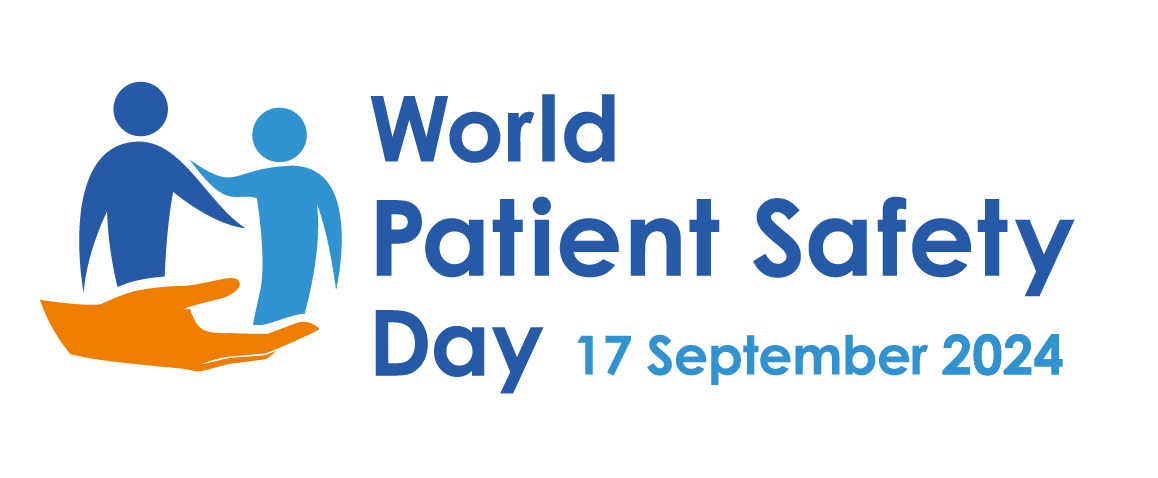Blog
World Patient Safety Day 2024 Improving diagnosis for patient safety – how is Health Innovation Wessex contributing?
17 September 2024

Blog
17 September 2024

This year’s theme from the World Health Organisation for World Patient Safety Day on 17 September, Improving diagnosis for patient safety, aligns closely to our work. The slogan Get it right, make it safe! is fundamental to the role of the Wessex Patient Safety Collaborative delivering improvement projects within our local health and care systems.
Delivered through Health Innovation Wessex, the Wessex Patient Safety Collaborative team works closely with patient groups, public representatives and partner organisations locally and nationally to improve diagnosis and health outcomes.
The NHS definition of patient safety is ’the avoidance of unintended or unexpected harm to people during the provision of health care. We support providers to minimise patient safety incidents and drive improvements in safety and quality. Patients should be treated in a safe environment and protected from avoidable harm.’ Patient Safety Collaboratives were established by NHS England to bring about system-wide improvements to ensure the safety and wellbeing of people in the care of our health services, in response to Professor Don Berwick’s 2014 report, A Promise to Learn: A Commitment to Act. This report called for the NHS “to become, more than ever before, a system devoted to continual learning and improvement of patient care, top to bottom and end to end’’.
Building on the work of the last nine years, the 15 national Patient Safety Collaboratives will continue as the main delivery arm to support the provision of the national patient safety improvement programmes described in the NHS Patient Safety Strategy.
How have we improved diagnosis for patient safety in Wessex?
In our managing deterioration programme we have supported the use of early warning scores, which put a numerical value against signs and symptoms to enable timely and appropriate prevention, identification, escalation and responsive care for patients who are becoming unwell (PIER). This year the programme includes Martha’s Rule, which supports patients, families, carers and staff to have round-the-clock access to a rapid review from a separate care team if they are worried about a person’s condition.
In our maternity and neonatal programme we are helping units to adopt standardised maternity and newborn early warning scores, as well as continuing to promote best practice in the optimisation and management of pre-term births.
In our medicines safety programme we are supporting clinicians to help patients to manage chronic non-cancer pain with alternatives to opioids. This is because evidence shows little benefit of opioids when used long term for pain and they can have a number of side effects, even resulting in death. This work complements our successful medicines optimisation programme that is helping patients get the maximum benefit from their medicines. As we live longer with more chronic and long-term diseases, it is becoming increasingly common for people to experience problematic polypharmacy. Problematic polypharmacy is used to describe when people experience problems either in the number of medicines that they are taking, clinical challenges from the combination of medicines that they are taking, or both. This is an ongoing and growing challenge for the NHS. The Health Innovation Network Polypharmacy Programme successfully supports local systems and primary care to identify patients at potential risk of harm and to support better conversations about medicines by promoting shared decision making - where clinicians and patients are equal partners in agreeing which medicines are important to treatment and life goals alike.
Another key area is to address health inequalities. We are improving health equity by targeting under-served populations in our delivery of NHS England’s Innovation for Healthcare Inequalities Programme (InHIP). One example of this is in colorectal cancer, which is the fourth most common cancer, with poorer outcomes affecting those living in communities with higher social deprivation. While the use of the NICE-approved faecal immunochemical test (FIT) is one way of supporting earlier detection, uptake remains low in some communities. Supported by Health Innovation Wessex , Dorset Integrated Care System’s Cancer Programme engaged with people across the county to understand awareness and experiences of using FIT. This included a Dorset-wide public survey and working with those less likely to complete a test (people experiencing homelessness, people with a learning disability, fishermen, farmers, and construction workers) to achieve this insight and identify interventions that would support people with suspected colorectal cancer to complete a test.
We have also helped 340 people in under-served communities in Hampshire and the Isle of Wight to receive blood pressure monitoring, with more than 33% referred for onward care.
Finally, in another couple of examples of our work, Health Innovation Wessex led on the national spread of fractional exhaled nitric oxide (FeNO) testing and to improve the pathways for people with suspected and confirmed asthma, as a key partner of NHS England’s Accelerated Access Collaborative (AAC). Another exemplar of our collaborative working identified several hundred new patients with a genetic condition causing cardiovascular disease by supporting the diagnosis of familial hypercholesterolemia (FH). It used a risk identification tool called FAMCAT2 which was piloted in GP practices across Hampshire and the Isle of Wight from December 2021 to June 2023. Health Innovation Wessex published a case study with comprehensive details on the pilot including outcomes in July 2024.
Can we help you?
Wessex Patient Safety Collaborative can help you meet your improvement priorities. Find out more about us on our webpage, or send us an enquiry – we’d love to hear from you.
Share
Need more information?
Contact the communications team:
(023) 8202 0858